The Mainland Affairs Council (MAC) yesterday urged Beijing to correct its “historical mistake” of the 1989 Tiananmen Square Massacre.
Today marks the 30th anniversary of the massacre, which began overnight on June 3, 1989, and continued through June 4 to brutally crush tens of thousands of students, workers and others who had been protesting in and around the square, calling for democracy, free speech and a free press.
For 30 years, the Chinese government has lacked the courage to reflect on the historical significance of the June Fourth Incident, choosing instead to “block information, distort the truth and attempt to cover up its mistakes and the events of 1989,” the council said in a statement.
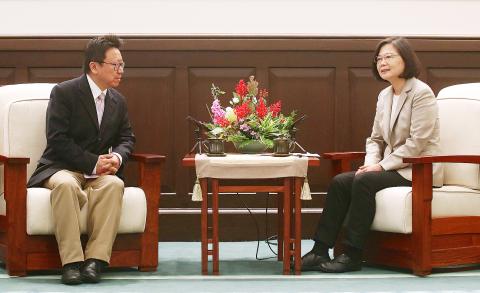
Photo: CNA
China should face its historical mistakes, apologize and correct the incident so that the victims of the incident may “rest in peace,” it said.
Taiwan would continue to “lead the way” for the democratization of China, and support China’s move to democracy “in all manner of ways,” it said.
Hopefully, people in Taiwan and abroad would not forget the history and spirit of June 4, the council said, adding that “one day, the dawn of democracy will eventually come.”
The council also called on China to immediately release Taiwanese human rights advocate Lee Ming-che (李明哲), who is serving a five-year prison sentence in Hunan Province for “subversion of state power.”
Reflecting on Tiananmen, President Tsai Ing-wen (蔡英文) said that it was a shame that although China’s economic development has improved over the past few years, human rights there are still limited.
Speaking to a group of overseas democracy activists at the Presidential Office in Taipei, Tsai drew comparisons between today’s 30th anniversary of the massacre and the 40th anniversary of the Kaohsiung Incident, saying the two events were of crucial historic significance.
The Kaohsiung Incident was a crackdown by the then-Chinese Nationalist Party (KMT) authoritarian government on a demonstration organized by Formosa Magazine and its publisher — Legislator Huang Shin-chieh (黃信介) — and other pro-democracy advocates on Dec. 10, 1979, in Kaohsiung.
Taiwan’s democratization was fraught with difficulty, she said as she pointed to a photograph of Presidential Office Secretary-General Chen Chu (陳菊) when she was on trial in a military court for her role in the Kaohsiung Incident.
The direction and pace of development in Taiwan and China diverged after their respective incidents, with Taiwan firmly taking the path of democracy and freedom, while human rights and freedom have been severely constrained in China, Tsai said.
Taiwan will defend the values of democracy, and cares about the development of democracy and human rights in China, which are universal values that she hopes China would pursue, she said.
Additional reporting by Su Yung-yao, CNA and Reuters
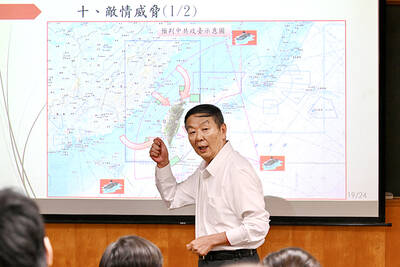
RETHINK? The defense ministry and Navy Command Headquarters could take over the indigenous submarine project and change its production timeline, a source said Admiral Huang Shu-kuang’s (黃曙光) resignation as head of the Indigenous Submarine Program and as a member of the National Security Council could affect the production of submarines, a source said yesterday. Huang in a statement last night said he had decided to resign due to national security concerns while expressing the hope that it would put a stop to political wrangling that only undermines the advancement of the nation’s defense capabilities. Taiwan People’s Party Legislator Vivian Huang (黃珊珊) yesterday said that the admiral, her older brother, felt it was time for him to step down and that he had completed what he
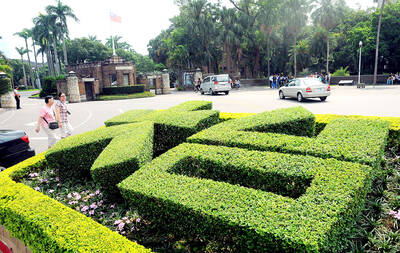
Taiwan has experienced its most significant improvement in the QS World University Rankings by Subject, data provided on Sunday by international higher education analyst Quacquarelli Symonds (QS) showed. Compared with last year’s edition of the rankings, which measure academic excellence and influence, Taiwanese universities made great improvements in the H Index metric, which evaluates research productivity and its impact, with a notable 30 percent increase overall, QS said. Taiwanese universities also made notable progress in the Citations per Paper metric, which measures the impact of research, achieving a 13 percent increase. Taiwanese universities gained 10 percent in Academic Reputation, but declined 18 percent
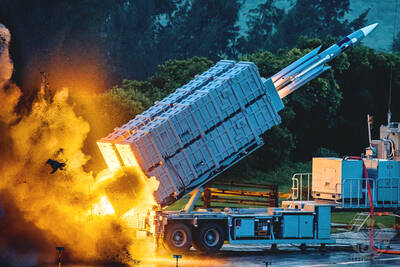
UNDER DISCUSSION: The combatant command would integrate fast attack boat and anti-ship missile groups to defend waters closest to the coastline, a source said The military could establish a new combatant command as early as 2026, which would be tasked with defending Taiwan’s territorial waters 24 nautical miles (44.4km) from the nation’s coastline, a source familiar with the matter said yesterday. The new command, which would fall under the Naval Command Headquarters, would be led by a vice admiral and integrate existing fast attack boat and anti-ship missile groups, along with the Naval Maritime Surveillance and Reconnaissance Command, said the source, who asked to remain anonymous. It could be launched by 2026, but details are being discussed and no final timetable has been announced, the source
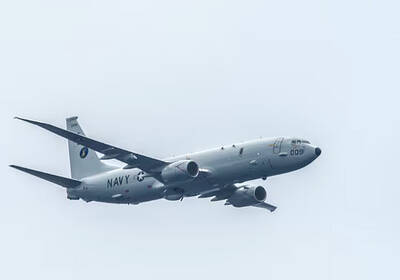
CHINA REACTS: The patrol and reconnaissance plane ‘transited the Taiwan Strait in international airspace,’ the 7th Fleet said, while Taipei said it saw nothing unusual The US 7th Fleet yesterday said that a US Navy P-8A Poseidon flew through the Taiwan Strait, a day after US and Chinese defense heads held their first talks since November 2022 in an effort to reduce regional tensions. The patrol and reconnaissance plane “transited the Taiwan Strait in international airspace,” the 7th Fleet said in a news release. “By operating within the Taiwan Strait in accordance with international law, the United States upholds the navigational rights and freedoms of all nations.” In a separate statement, the Ministry of National Defense said that it monitored nearby waters and airspace as the aircraft